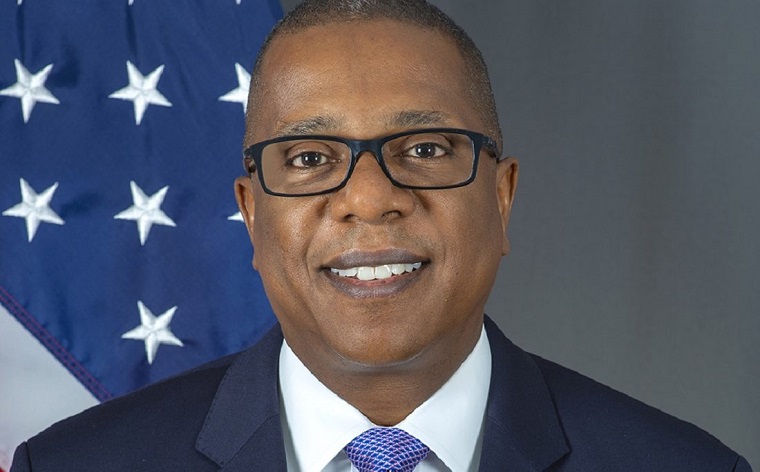 Zimbabwe does not take kindly to the continued interference in local politics by US ambassador Brian Nichols and will not hesitate to invoke punitive measures against him in line with international law, a cabinet minister said yesterday.
Zimbabwe does not take kindly to the continued interference in local politics by US ambassador Brian Nichols and will not hesitate to invoke punitive measures against him in line with international law, a cabinet minister said yesterday.
Last week, Nichols wrote a guest column in the private paper NewsDay accusing government of all manner of evils in an attempt to mask his country’s blameworthiness in the economic challenges that Zimbabwe is facing, without giving evidence or proof.
The US, along with its western allies imposed sanctions on Zimbabwe nearly two decades ago in direct retaliation to the land reform programme which had been carried out by the ZANU- PF government.
The sanctions have caused untold suffering among the people, collapse of key economic sectors and financial damages estimated at over US$90 billion.
Jolted by region-wide revulsion over its two decade long illegal sanctions against Zimbabwe, the US went into overdrive last week to explain and defend its unjustified embargo.
Along with Nichol’s column, the US embassy went into overdrive on social media running a campaign under the hashtag #ItsNotSanctions in a futile attempt to cow the Southern African Development Community (SADC) which marked a special day of solidarity with Zimbabwe over the sanctions on Friday last week.
In a strong worded three page statement, Foreign Affairs and International Trade Minister Lieutenant General Sibusiso Moyo (Rtd) described Nichols’s statement and actions as unfortunate and that they amounted to abuse of diplomatic privilege.
“The statement made by the US ambassador on the occasion of the SADC anti-sanctions day on October 25 exhibited a clear contravention of acceptable diplomatic etiquette, was grossly partisan in nature and reflected not only a worrying lack of respect for the host government but was also abusive of the hospitality of the people of Zimbabwe as a whole,” he said.
“Whilst we are welcoming, extremely tolerant and friendly people, it would be a mistake for these qualities to be misinterpreted by any diplomat to mean that we are weak or that we will simply ignore or tolerate any form of insult or abuse.”
He added; “We have the means to bring all this to an end should we deem it necessary or should we be pushed too far.”
The US ambassador was also actively involved in the planning of anti-government demonstrations that were planned by the opposition MDC in August this year, with evidence at hand showing that he visited top opposition officials at their homes to plan the protests.
Moyo said the Vienna Convention, which governs diplomatic relations, forbade diplomats from interfering in local politics and clearly spelt out functions which a diplomatic mission may exercise and those that it may not.
“Clearly the convention does not permit embassies to conduct themselves like opposition citadels, pre-occupying themselves with the constant casting of aspersions, innuendo and even insults of the host government.
“In fact, the Convention (Article 41) places a two-fold duty on diplomats in that they have to respect the laws and regulations of the receiving state and should not interfere in internal affairs of the state,” he said.
“It follows therefore that the conduct of any diplomat which is openly inimical to the promotion of friendly relations is far removed from the core objectives of the Convention and cannot simply be ignored.”
Moyo added; “No diplomat should allow themselves to behave or conduct themselves like some kind of opposition member with complete disregard for all norms of permissible diplomatic protocol. The constant portrayal as fact of what are mostly largely unsubstantiated allegations or even rumours often still being investigated or processes of law enforcement or other agencies of government is unacceptable. Persistent behaviour of this nature will test the patience of even the most tolerant amongst us.”
Moyo said government was committed to dialogue with the West, but warned that the behaviour being exhibited by the US envoy risked curtailing the re-engagement process.
“We genuinely seek dialogue with all well-meaning countries as part of our re-engagement efforts, but our openness and the innate generosity and spirit of all Zimbabweans should not be taken for granted and should certainly not be abused,” he said.
“It would be a very sad day if the dialogue between the US embassy and this Ministry, and government more broadly, were to collapse completely under its present leadership such that we would end up just ignoring or even avoiding each other.”- New Ziana
(77 VIEWS)






0 Comments